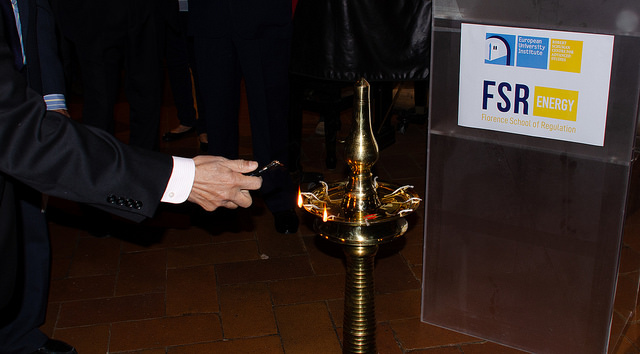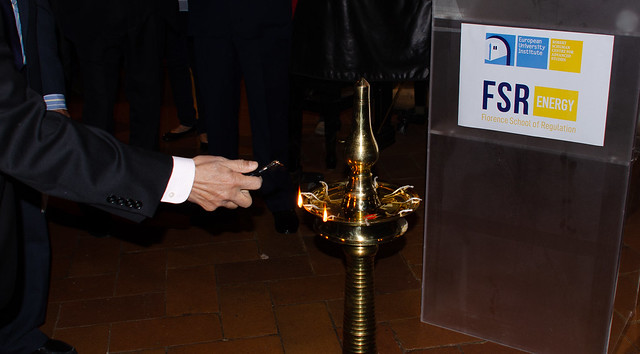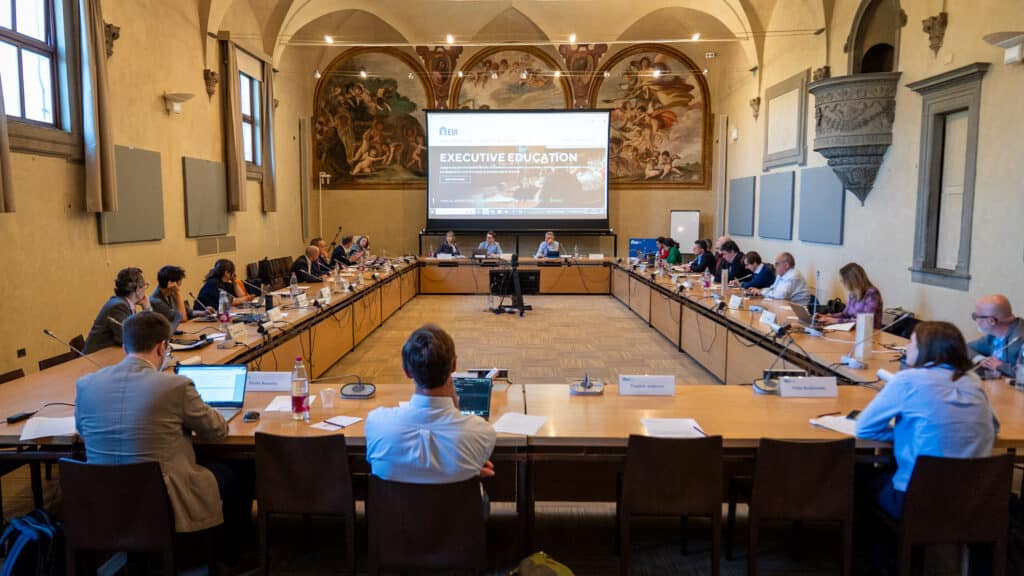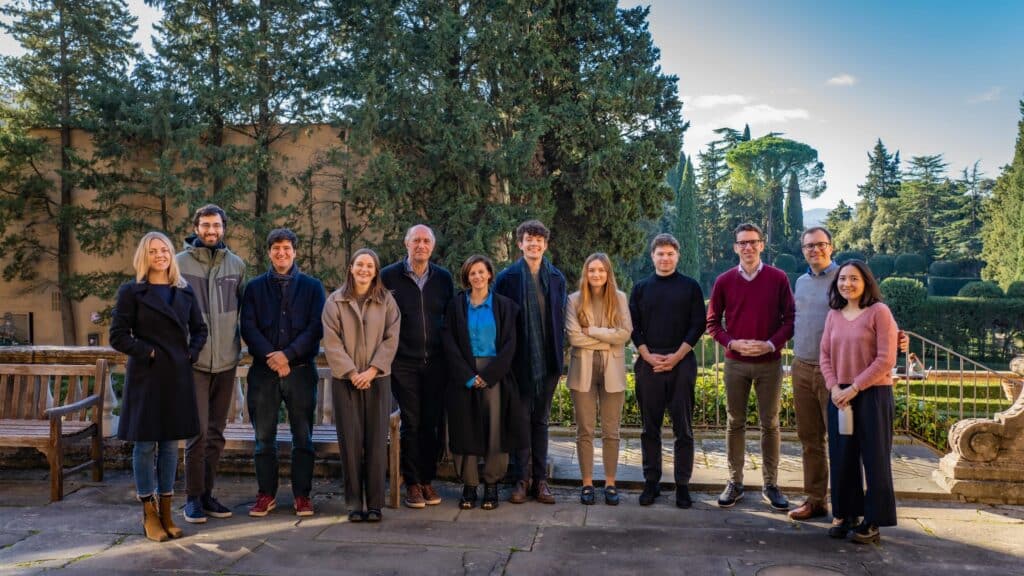The Florence School of Regulation hosted the 6th EU-India Smart Grids Workshop from 19 to 22 November 2018 in collaboration with the European Commission and the Indian Smart Grid Forum. The workshop hosted high-level dignitaries from the Indian central and state regulators and DISCOs.
Smart grid has been highlighted as a priority area of cooperation under the frame of the EU – India Clean Energy and Climate Partnership, adopted at 2016 EU-India Summit (30 March 2016 in Brussels). The Leaders’ Statement on Clean Energy and Climate, adopted at 2017 EU-India Summit (6 October 2017, Delhi) further emphasised the importance of continued cooperation on smart grids development and deployment.
As a continuation of this dialogue, the workshop addressed two thematic areas:
- Integration of electric storage (ES) and electric vehicles (EV) in smart grids
- Regulation for enabling cost-effective integration of large shares of renewables.
The first day of the workshop focused on the integration of storage and EV in smart grids. The trends, issues, policy and regulatory frameworks that dictate the future of ES and EV were discussed.
The global trend in electric mobility is seen as an opportunity for India to reduce its oil fuel import and improve the air quality of its cities. The content of the draft policy for EV charging infrastructure as well as enablers that are required to steer the future of mobility and investment were discussed. The localised overloading impact of EV on the distribution grid, lack of technology standards of EV related equipment, lack of charging infrastructure, and cybersecurity concerns were cited as key challenges for EV adoption. Moreover, given the high cost of rolling out EV charging infrastructure, it was noted that various stakeholders of the sector would have to play an active role in shaping a viable business model including utilities, city administrations, EV manufacturers, fleet operators and commercial centres.
Similarly, in the European Union (EU), gaps in regulatory frameworks, interconnections to the grid and market qualifications as well as hardware infrastructure and vehicle availability are identified as barriers to Vehicle to Grid (V2G) rollout. Moreover, interoperability of devices remains a key issue. In this regard, the smart charging infrastructure platforms and open standards were discussed as possible solutions.
In India, the policy on integrating electric storage is still under development. Currently, distribution companies have started experimenting with the introduction of utility-scale batteries. The regulator deals with these requests on a case-by-case basis. The urgent need for developing regulatory frameworks that consider the functional versatility of electric storage was identified as crucial for enabling these technologies. While in Europe, lack of clarity on market rules for the participation of electric storage and the question of their ownership are the current key concerns.
The second day of the workshop focused on the nuances of power sector regulation from both the EU and the Indian perspective. The theme of the day was developing regulations to integrate large shares of renewable energy cost-effectively. The topics addressed provided an introduction to the EU and India power sector and included lessons on network unbundling, tariffs of the future, regulation of innovative technologies in the electricity network industry and energy markets design.
The session started by providing insights on the liberalisation process and current issues of the power sector in EU and India. The EU has followed a gradual unbundling process. The electricity sector was liberalised in three legislative packages, and the process will continue with the fourth package (clean energy for all Europeans package) which is currently under discussion.
A key issue highlighted for network industry during the first decade of liberalisation was the reduction in enterprise value. As the network investments depreciated, the regulated asset base (RAB) declined thereby leading to lowering of cost-based tariffs and consequently the revenue for the network operator. Regulators were required to take action to mitigate this issue. The present issues identified are quite different. The system architecture, especially for distribution networks, is rapidly evolving due to rise in demand response and distributed energy resources as well as injection of renewable generation into the distribution grid. Thus, the differentiation between the role of transmission and distribution network is progressively blurred. Furthermore, the transformation to sustainable energy systems requires a substantial investment in smart grids. From the regulators perspective, information asymmetry about the real costs of these grid upgrades was identified as the main risk to efficient tariff setting.
In India, transmission assets are owned by national transmission utility (Power Grid Corporation of India), state transmission utilities or private entities. Distribution companies are either state-owned, public-private enterprises or privately owned. The distribution and retail functions are predominantly bundled together and regulated by the state regulatory commissions. Generation companies are both state-owned and privately owned. Power exchanges exist; however, long-term power purchase agreements are dominant.
The key current issues in India for networks that were identified are the integration of the national transmission grids, public acceptability of raising tariffs to trigger necessary level of network investment, integration of intermittent renewables, the introduction of retail competition (content and carriage separation) and improving market efficiency. Furthermore, the need for regulation to be adapted to take into account the impact of innovative technologies was highlighted.
As a continuation of this dialogue, further projects and research exchanges between EU and India is envisaged in the near future.







